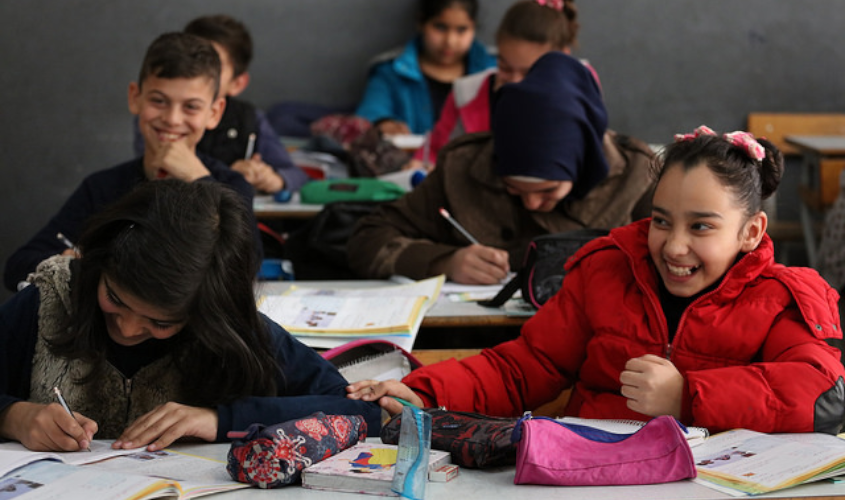Microsoft’s Leadership on Education for Refugees

Photo © Dominic Chavez/World Bank
Across the globe, as many as 75 million children and adolescents have had their education interrupted or ended because of conflicts, natural disasters, and other emergencies. More than half of the 21.3 million refugees in the world are under 18 years old. In these circumstances, access to education is a lifeline—not only providing immediate protection from child labor, child marriage, and recruitment into fighting, but also in ensuring that these young people do not miss out on building the skills essential to gain employment in the future.
In our globalized world, ensuring that millions of young people do not fall through the cracks is essential to rebuilding economies, markets, and a future workforce in areas impacted by crises. Businesses can play a crucial role by donating financial and in-kind resources to humanitarian organizations, and by contributing core business, innovation, and expertise for piloting or scaling up effective education interventions.
Microsoft, in partnership with the UN and Non-Profits, is making great strides in supporting both formal and informal learning programs for the most vulnerable. Microsoft has brought together several free technology training and curriculum resources for humanitarian organizations who are delivering technology skills to displaced populations. These programs can help gain digital literacy and computer science skills. Microsoft also launched an initiative alongside UNHCR to provide internet connectivity to refugees in Dzaleka Camp in Malawi.
In Jordan, Microsoft is rebuilding their Innovation Center to support reskilling and entrepreneur programs for both the host community and refugees. The innovation centers focus on the local skills, job enablement, and new business opportunities to solve local challenges.
Microsoft recently announced the expansion of their highly successful language-learning app, called “Schlaumause,” to help refugee children learn the German language and get integrated into their new communities. Schlaumause will reach 100,000 refugee children in the next year, in partnership with local governments and nonprofits.
In partnership with Mercy Corps, Microsoft is working to bring psychosocial programs to 10,000 refugee youth in Greece and Turkey. Mercy Corps’ Youth Learning Spaces like the Melissa Center in Greece offer a safe place for youth to receive art therapy, build a community and get outside of refugees camps. Plus, the youth are building a website for the center. Microsoft donated hardware, IT skills training, and Microsoft Greece is providing volunteer teachers, training, and curriculum for the youth and training resources.
Microsoft’s leadership has demonstrated the opportunity of the private sector to leverage their innovation, core business, and partnerships to support education in humanitarian crises, allowing young people displaced by crises to continue to learn and equipping them for the needs of the job market.
GBC-Education supports Theirworld’s #YouPromised campaign to ensure the promise made to get all Syrian refugee and vulnerable host community children into school is fulfilled.
For more information on how businesses can invest in education in emergencies, see our July 2016 GBC-Education Circular: Business Leads in Emergencies.
